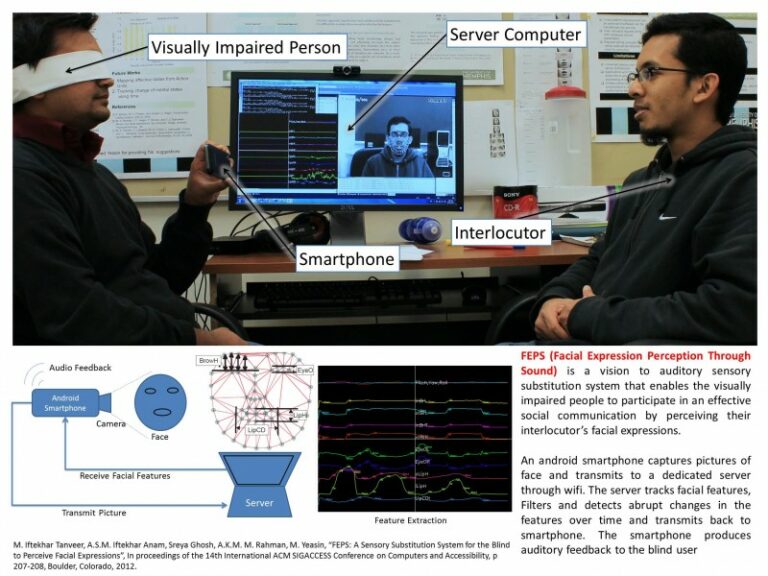It is a pain to talk with people suffering from superiority complex. The hard work that is vital for acquiring knowledge often brings a delusion of grandeur to some people. They often think that only they can talk in perfect English. Everyone else’s English is just imprecise and bogus. Many of them also show a demeaning attitude. Whenever you’ll say something, they’ll try to point out how your sentence construction is syntactically wrong or mathematically imprecise. Once I met such a delusional person who had some kind of enmity with the word “usually”. I must concede that I, sometimes, use this word a little too …
Category: Science or Scientasy
Seeing Professor Gilbert Strang
Today (June 26th, 2015) I went to see one of my favorite teachers — Prof. Gilbert Strang. One day in 2009, while I was watching his Linear Algebra video lectures (http://ocw.mit.edu/…/math…/18-06-linear-algebra-spring-2010/) in a quiet corner of my room, I started to realize an extraordinary beauty was slowly unfolding in front of me. I felt a deep gratitude for this person who introduced me to this beauty. That day I promised, someday, I will see him face-to-face and say “Thank You”. That is exactly what I have done today. This was on my Bucket list for quite some time and now it is …
Everything is Nice and Pretty (Linear) in Higher Dimension
All the twists (non-linearity) come from the lack in “space” in the low dimensional world. “Heaven” must be in an infinite dimensional space.
Positive Infinity and Negative Infinity
Recently, I watched a BBC documentary named “Horizon: Infinity” that illustrates several concepts of infinity. These are some thoughts that have been perplexing humans for a really long time. The most common facts about infinity are usually expressed using a concept of an infinitely large hotel – which has infinitely many rooms. Even when that hotel is full, it is possible to make room for 1, N or infinitely many new customers. How? If you need N rooms, tell all the existing customers to shift in room number i+N, where i is their current room number. You’ll get N free rooms (1 to N). If you need infinite …
FEPS Thematic Diagram
The featured image shows the primary use case for my software FEPS. Check the contributions page for corresponding paper and other information.
Paper review: Neural Reorganization Following Sensory Loss: The Opportunity of Change
Merabet, L. B. & Pascual-Leone A. Neural Reorganization Following Sensory Loss: The Opportunity of Change, Nature Reviews Neuroscience, vol 11, pp 44-52, 2009 It is apparent from a long growing mass of evidences that the part of a brain responsible for processing information from a particular sensory channel gets recruited for other activities after loss of that particular channel. This phenomenon is referred to as “neuroplastic” behavior of brain. When it contributes to the improvement of other sensory channels, it is called “crossmodal neuroplasticity”. This paper refers to a considerable amount of reported evidences on crossmodal neuroplasticity following sensory deprivation and came …
An Interesting Paper
Shape conveyed by visual-to-auditory sensory substitution activates the lateral occipital complex Amir Amedi 1,2, William Stern 1, Joan A. Camprodon 1, Felix Bermpohl 1,3, Lotfi Merabet 1, Stephen Rotman 1, Christopher Hemond 1, Peter Meijer 4 and Alvaro Pascual-Leone This paper reports some functional characteristics of a part of brain known as the lateral-occipital tactile-visual (LOtv) area. Traditionally, this part is known to be activated when a person observes the shape of an object through vision or touch. In this paper, it is claimed that this part of brain is responsible for analyzing shape of an object regardless of the …
Mighty Mind : Phantom Limb
Few weeks back I watched a DVD borrowing from Netflix named “The Secrets of Mind”. It is an interesting documentary delving into the deep of human mind, nature and consciousness. It features some work of famous neuroscientist Dr. Vilayanur Ramachandran. This post is mainly a summary of that documentary in my own language.
Some interesting linear algebra theories
if and are subspaces for a vector space then is a subspace (of ). Definition: denotes the set of all the vectors possible to construct by adding a vector from with a vector from where and may be either set of vectors or subspace of vectors. If and are subspaces for a vector space then is the smallest subspace which contain both and .
Dreams
I have just finished watching a documentary named: “What are dreams?” It is exhilarating to watch how wonderful our brains are. Dreams are another magnificent working aspect of brain. I felt really interested when I went through certain aspects of dreams. For example, during REM (Rapid Eye Movement) sleep brain actually sends signal to completely paralyze muscles. Do you know why? Because that is a wonderful period of time. Brain stem (the core part of brain) actually sends signal to make the brain super active. If the muscles are not paralyze, they’ll be activated and the person will walk or run or …

